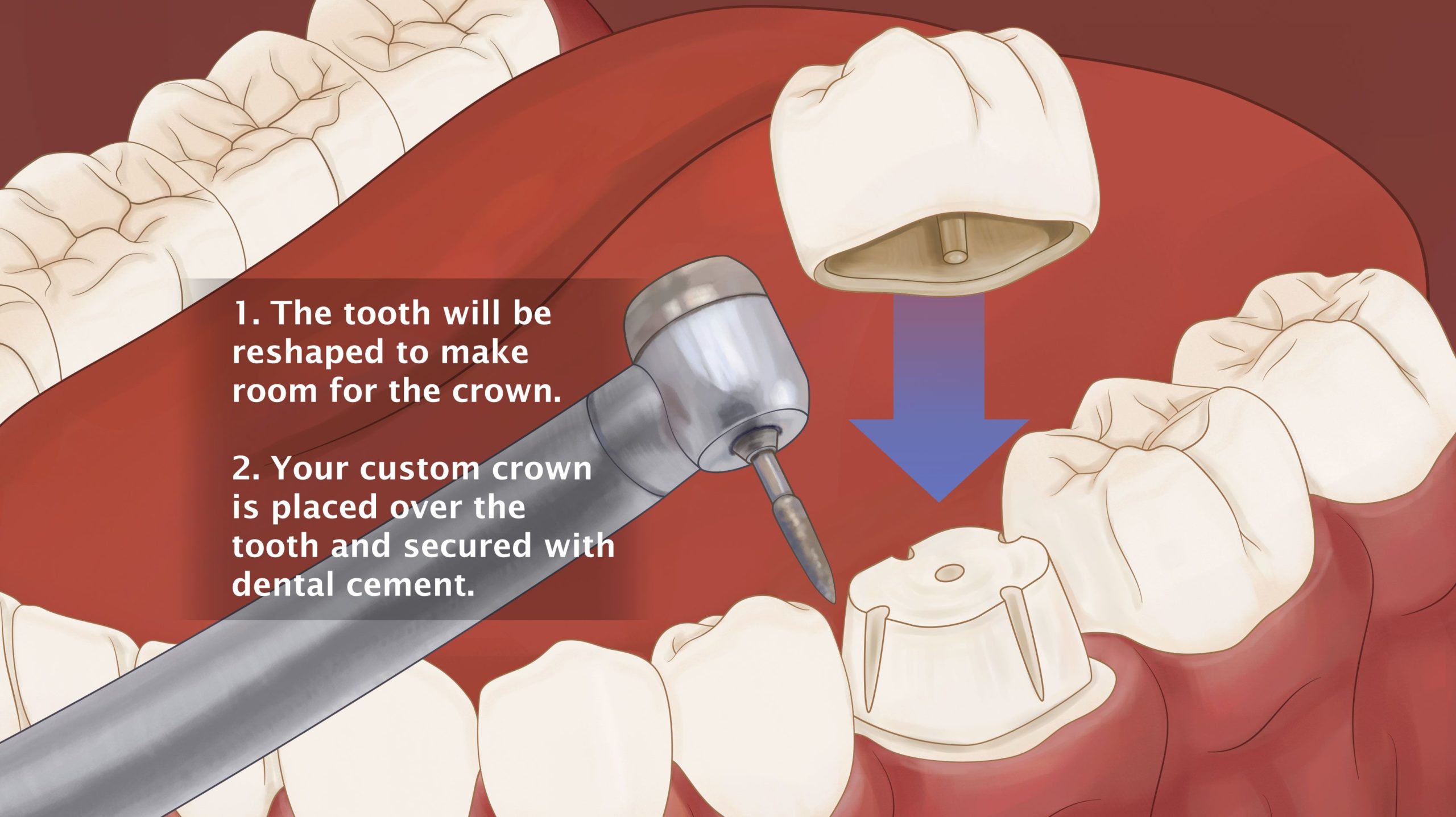What you need to know about Dental Crown Procedure
Contents
- 1 What you need to know about Dental Crown Procedure
- 2 What does the Procedure Involve?
- 3 How Long Should You Stay at the Destination?
- 4 What’s the Recovery Time Like?
- 5 What Aftercare Should You Consider?
- 6 What is the Success Rate for Dental Crown Procedure?
- 7 Are there Alternatives to Dental Crown Procedure?
- 8 What Should You Expect Before and After the Procedure?
A dental crown is a “cap” positioned over a damaged tooth to restore its shape, strength, size, or improve its appearance. It is usually required when the ongoing health of your tooth is threatened by a large cavity, discolored, broken, or to hold a dental bridge in place. The crowns can be made from various materials, such as porcelain, ceramic, metal, zirconia, composite resin.
What does the Procedure Involve?
You may need several appointments to get a dental crown. During the procedure, you will be given local anesthetic. Your dentist will reshape the tooth receiving the crown to make room for the crown, but if your tooth is badly decayed or damaged, your dentist will use filling material so the tooth can support the crown. After your tooth is reshaped, a paste or putty will be used to make an impression of the tooth to receive the crown. Sometimes, your dentist may use a digital scanner instead of a paste to do this. Then, your dentist sends the crown to a lab that makes the crown, which may take several days or weeks. When the crown is ready, your dentist cements the crown to your tooth. With a same-day procedure, the crown is made in your doctor’s office and you only need to wait for about 1 to 2 hours until the crown is made.

How Long Should You Stay at the Destination?
You may need to stay in the area for one to two weeks, depending on how it takes for the crown to be made in the laboratory. If your dentist has a same-day dental crown procedure, you do not have to stay in the area any longer than required.
What’s the Recovery Time Like?
You need little to no downtime after a dental crown procedure. The crowned tooth may be sensitive after the procedure. You may experience some heat and cold sensitivity, but it will subside within a few days. If you feel pain when you bite down, call your dentist to fix the crown.
What Aftercare Should You Consider?
The crowned tooth does not need any special care, but you need to take good care of your overall oral hygiene. Practice careful brushing twice a day, floss daily, use an antibacterial mouthwash, avoid chewing hard foods (especially if you have a porcelain crown), and avoid grinding or clenching your teeth.
What is the Success Rate for Dental Crown Procedure?
A dental crown procedure is almost always successful and can last between five to fifteen years. The side effects and risks include teeth sensitivity, chipped crown, loose crown, allergic reaction, and gum disease.
Are there Alternatives to Dental Crown Procedure?
If your tooth is too worn down or weakened to support a crown, your dentist may recommend you to get a veneer. You may also get porcelain onlays.
What Should You Expect Before and After the Procedure?
Your tooth may be severely worn down, discolored, or cracked before you undergo a dental crown. After the procedure, your tooth will look healthy.
For an in-depth analysis of a Dental Crown Procedure, watch this short video.
To check prices or to book a Dental Crown Procedure in Thailand or anywhere else in the world, head on over to MyMediTravel now!

